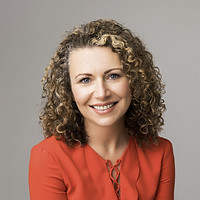DesignU
The middle man between industry needs and taught skills




EDUCATION IN 2030
A glimpse of what education is predicted to look like in 2030
Political Trends
Education is set to be compulsory until grade 12 - this means that South Africa needs more institutions that cater to different educational needs. Not every individual will be able to join a traditional university therefor alternative programs should be made available. Furthermore, South African graduates should have the skills and knowledge to meet the needs of the South African society and economy. This political goal outlines the need to bridge the gap between learning and doing.
Social Trends
There will be a shift in learning from being theory-based to becoming more project-based. Students will also take more ownership over their studies. There will be a greater interest in real-world applications and project-based learning. There will also be a shift in organisational structure - students will expect a mentoring relationship with their teachers, lecturers or professors.
Technological Trends
The increase in smartphone use will change that way in which information is delivered. As classes move online, institutions will also become paperless - offering all learning material (such as books) in digital format. Furthermore, the incorporation of virtual reality will enhance students learning experience by giving them access to an education form that enhances their understanding of the content that they are studying. Institutions will have to incorporate the newest technologies such as virtual reality, holograms, devices and so on to ensure student engagement.
ABOUT US
DesignU... the middle man between industry needs and taught skills
DesignU is a private design educational institute that has partnered with various industry players to ensure that employer needs and the skills taught at DesignU are aligned.
Whether you are fresh out of high school or looking to make a career change, DesignU is the place for you. We cater to various students groups interested in various educational programs such as degree, diploma, higher certificate, and skill training programs. We recognise that students want more control over what, how, when and where they study, it is because of this that the institute offers multiple teaching styles to appeal to different student personalities. We recognised the importance of individuality and therefore, offer a customisable learning experience where lectures work within the industry and serve as mentors to help students develop their ideas, views and thoughts. Projet-base and real-world application learning is at the centre of our curriculum. Our lecturers and industry partners work closely with the DesignU admin team to ensure that our curriculum remains relevant - the content adapts as the industry does. Our classes are a combination of online learning, in-person consultation and interactive study material such as hologram classes and virtual reality to enhance a students' learning experience.
At DesignU we cater to different educational needs by offering three study options
STUDY OPTIONS

COURSES AND SUBJECTS
At DesignU, our bachelor's degree and diploma qualifications are registered on the NQF at Exit Level 7 with a minimum of 360 credits. Higher Certificates are, however, registered on the NQF at Exit Level 5 with a minimum of 120 credits.
Students have enough freedom to choose what to learn and when they want to learn it. The same four subjects will run from first to the third year the content will, however, become more complicated. Then students will be able to choose two extra electives (per year). The four compulsory subjects will account for 24 credits each (per year) and the electives will account for 12 credits (per year).




Psychology and Sociology
COMPULSORY SUBJECT
This is a researched-based subject that focuses on understanding the user and teaches students to design with empathy. Different research methodologies will be used and tested to understand both the problem and user.
Design Thinking
COMPULSORY SUBJECT
This subject will unpack design methodologies, the biases users and designer face and how to recognise them as well as how to observe, analyse and interpret different problems.
Communication Studies
COMPULSORY SUBJECT
This subject will unpack verbal and visual communication. Software programs such as Photoshop, PowerPoint, Illustrator and so on will be taught to students.
Coding
COMPULSORY SUBJECT
Students will be taught the basics of coding as well as the three most popular coding languages. Coding will teach students critical thinking, problem-solving and meaningful context (framing a problem).




Business and Project Management
ELLECTIVE
This subject offers insight and assistance on how to achieve all project goals as well as basic insight on how a business is run and what it requires.
User Experience
ELLECTIVE
This subject unpacks the touch point's that a user has with a product or service and how design can be used to improve it.
Illustration Design
ELLECTIVE
This subject addresses graphic design by eating students how to use relevant software programs to produce digital imagery (illustrations, paintings, logos and so on).
Marketing
ELLECTIVE
Marketing as a subject unpacks strategies, marketing concepts, target audiences and how to appeal to the different audiences.
MEET THE TEAM
DesignU makes use of a network structure. The Network Structure is more agile than other structures and information flows freely creating opportunities for innovation

The Network Structure is known for having fewer tiers within its organisational management, but there is still a structured management hierarchy even if it is less intense than other models. This model allows DesignU to make informed decisions regarding the curriculum, projects and so on because there is a bottom-up flow of decision making and ideas meaning that the feedback from students, lecturers, full-time staff and industry partners are carefully considered and evaluated.

As chief academic officer, it is my responsibility to translate industry, lecturer and student feedback into appropriate course content. I simplify the suggestions made through feedback and reduce the 'noise' in order to break a concept up in its respectable parts.
Sarah Smith
CAO

As an individual on the Administrative Team, I assist and work under the management team. I also serve as a communication line between the management team and the rest of the organisation. I am highly organised and have great communication skills.
Peter Davis Administrative Team

As a lecturer, I have to facilitate blended learning in the classroom, prep for class and facilitate student interaction. As a lecturer, I have strong practical skills that assist me in day-to-day tasks, and I value building personal relationships with my students.
Nikki Gilmore
Lecturer

CONTACT US
18 The Loop, Lynnwood, Pretoria, 0081
hello.designu.co.za
012 345 6789

